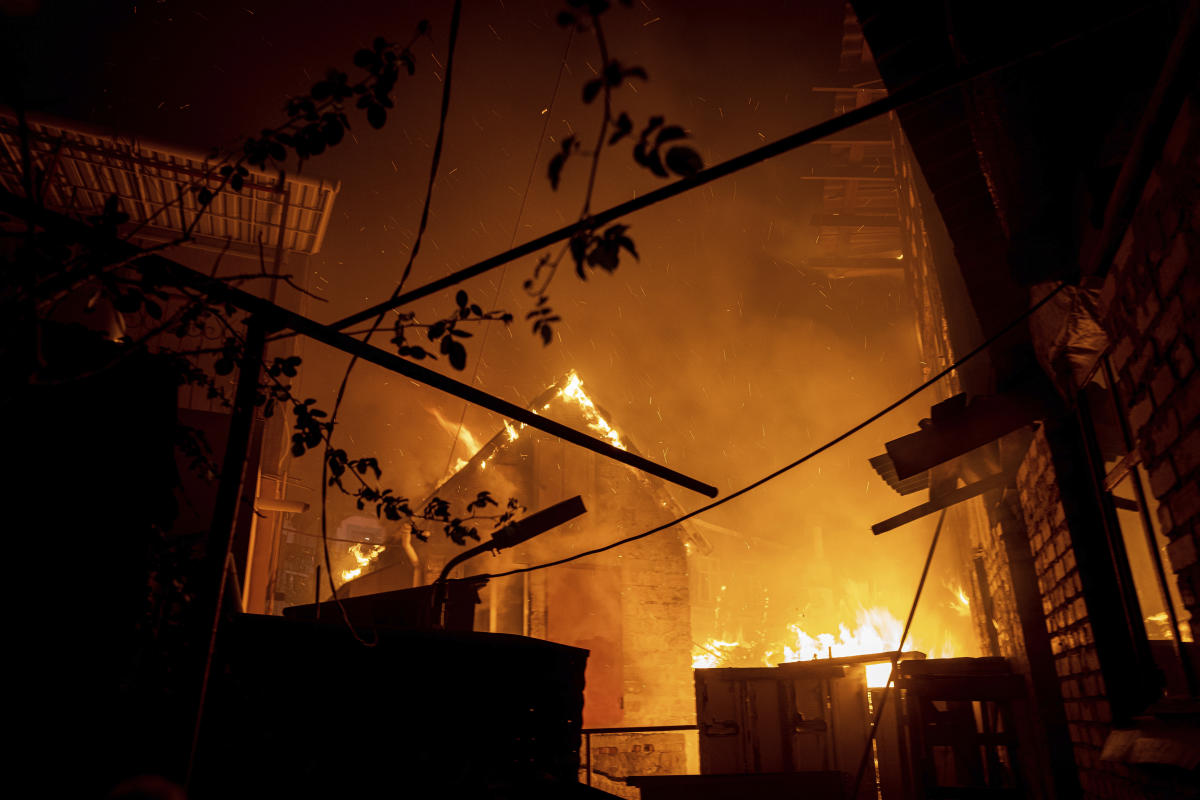KYIV, Ukraine (AP) — The chief of US intelligence says fighting in Russia’s war in Ukraine is at a “reduced pace” and suggests Ukrainian forces could have better prospects in the coming months.
Avril Haines alluded to earlier allegations by some that Russian President Vladimir Putin’s advisers could shield him from bad news – for Russia – about war developments, saying he is “becoming more aware of the challenges faced by the military in Russia faced”.
“But it’s still not clear to us at this stage if he has a full picture of how challenged they are,” the US director of national intelligence said Saturday at the Reagan National Defense Forum in Simi Valley, California.
Looking ahead, Haines said, “frankly, we’re already seeing a sort of reduced pace of conflict” and her team expects both sides to look at resupplying, resupplying and recovery for a potential Ukrainian counter-offensive in the spring.
“But we actually have quite a bit of skepticism about whether the Russians are really going to be willing to do that,” she said. “And I think more optimistically for the Ukrainians in that time frame.”
On Sunday, the British Ministry of Defense pointed to new signals from an independent Russian media outlet in its latest intelligence report that public support in Russia for the military campaign was “significantly waning”.
Meduza said it obtained a recent confidential poll from the Federal Protection Service, which is responsible for guarding the Kremlin and providing security for top officials.
The survey, commissioned by the Kremlin, found that 55% of respondents supported peace talks with Ukraine, while 25% wanted the war to continue. The report did not mention the margin of error.
Levada Center, Russia’s leading independent pollster, found in a similar poll conducted in November that 53% of respondents supported peace talks, 41% spoke in favor of continuing the struggle and 6% were doubtful. That poll of 1,600 people had a margin of error of no more than 3.4 percent.
The British Ministry of Defense noted that “despite efforts by Russian authorities to enforce pervasive control over the information environment, the conflict has become increasingly tangible for many Russians since the ‘partial mobilisation’ of September 2022.”
“With Russia unlikely to achieve major successes on the battlefield in the coming months, it is likely that it will become increasingly difficult for the Kremlin to maintain even tacit popular approval of the war,” it said.
In recent weeks, Russia’s military focus has been on attacking Ukrainian infrastructure and launching an offensive in the east, near the city of Bakhmut, while bombing the city of Kherson, which Ukrainian troops liberated last month after a Russian occupation of 8 months.
In his late-night speech on Saturday, Ukrainian President Volodymyr Zelenskyy lashed out at Western attempts to downsize Russia’s crucial oil industry, a major source of revenue for Putin’s war machine. He said their price cap of $60 per barrel on Russian oil imports was insufficient.
“It is not a serious decision to put such a limit on Russian prices, which is quite comfortable for the budget of the terrorist state,” Zelenskyy said, referring to Russia. He said the $60 per barrel level would still allow Russia to bring in $100 billion in revenue per year.
“This money goes not only to the war and not only to further sponsorship by Russia of other terrorist regimes and organizations. This money will be used for further destabilization of those countries that are now trying to avoid serious decisions,” Zelenskyy said.
Australia, Britain, Canada, Japan, the United States and the 27-nation European Union agreed on Friday to limit the amount they would pay for Russian oil to $60 a barrel. The limit goes into effect Monday, along with an EU embargo on Russian oil transported by sea.
Russian authorities rejected the price cap and threatened on Saturday to stop supplying countries that signed it.
In yet another show of Western support for Ukraine’s efforts to fight Russian forces and deal with the aftermath of the war, U.S. Secretary of State for Political Affairs Victoria Nuland on Saturday visited the operations of a Ukrainian aid group that supports internally displaced persons in Ukraine, in addition to her other visits to top Ukrainian officials.
Nuland collected yarn dolls in the blue-yellow colors of the Ukrainian flag with young people from regions such as northeastern Kharkiv, southern Kherson and eastern Donetsk.
“This is psychological support for them at an absolutely crucial time,” Nuland said.
“As President Putin knows best, this war could end today, if he chooses to stop it and withdraw his troops – and then negotiations can begin,” she added.
___
Koopman reported from Washington, DC

